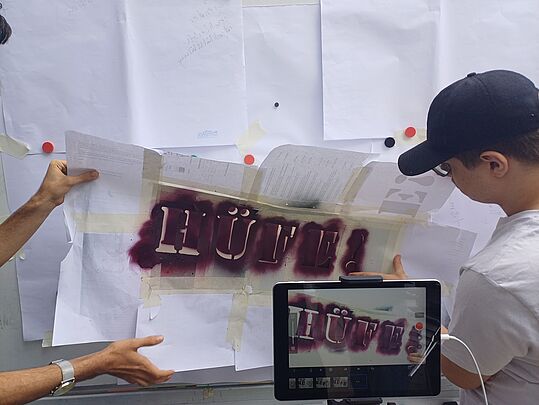Die Angst vor Gerechtigkeit
Gerechtigkeit ist ein Wert, den wir oft als erstrebenswert ansehen. Sie bildet das Fundament unserer Gesellschaft und unseres Rechtssystems. Doch paradoxerweise gibt es Menschen, die sich vor Gerechtigkeit fürchten. Warum ist das so?
Eine mögliche Erklärung liegt in der Angst vor Konsequenzen. Gerechtigkeit bedeutet oft, dass Taten und Handlungen bewertet und bestraft werden, wenn sie gegen Gesetze oder ethische Normen verstoßen. Für diejenigen, die sich auf der falschen Seite der Gerechtigkeit befinden, kann dies beängstigend sein. Die Angst vor Bestrafung und den damit verbundenen Konsequenzen kann Menschen dazu bringen, die Gerechtigkeit zu fürchten.
Eine weitere mögliche Ursache für die Angst vor Gerechtigkeit ist die Unsicherheit. Wenn ein Fall vor Gericht kommt, ist das Ergebnis oft ungewiss. Selbst wenn man glaubt, im Recht zu sein, besteht immer die Möglichkeit, dass die Entscheidung des Gerichts anders ausfällt, als man es erwartet. Diese Unsicherheit kann Angst auslösen, da sie das Gefühl der Kontrolle über die eigene Situation verringert.
Die Angst vor Gerechtigkeit kann auch aus einem Mangel an Vertrauen in das Justizsystem resultieren. Wenn Menschen das Gefühl haben, dass das System korrupt oder voreingenommen ist, können sie Angst davor haben, dass ihnen keine faire und gerechte Behandlung zuteilwird. Dies kann dazu führen, dass sie sich der Gerechtigkeit entziehen und versuchen, Konflikte außergerichtlich zu lösen, um sich vor möglichen Ungerechtigkeiten zu schützen.
Es ist wichtig zu beachten, dass die Angst vor Gerechtigkeit nicht immer rational ist. In vielen Fällen basiert sie auf Vorurteilen, Missverständnissen oder einer verzerrten Wahrnehmung des Justizsystems. Eine offene und faire Kommunikation über die Prinzipien und die Funktionsweise der Gerechtigkeit kann dazu beitragen, diese Ängste zu reduzieren und das Vertrauen in das System wiederherzustellen.
In einer idealen Gesellschaft sollte Gerechtigkeit keine Angst auslösen, sondern Vertrauen und Sicherheit bieten. Die Furcht vor Gerechtigkeit kann jedoch eine Gelegenheit sein, über die Schwächen unseres Justizsystems nachzudenken und Maßnahmen zu ergreifen, um es fairer und zugänglicher für alle zu gestalten.
Von Flo
—————————————————————————————————————————————————-
The Fear of Justice
Justice is a value that we often consider desirable. It forms the foundation of our society and our legal system. However, paradoxically, there are people who fear justice. Why is that so?
One possible explanation lies in the fear of consequences. Justice often means that actions and deeds are evaluated and punished when they violate laws or ethical norms. For those who find themselves on the wrong side of justice, this can be frightening. The fear of punishment and the associated consequences can lead people to fear justice.
Another possible cause of the fear of justice is uncertainty. When a case goes to court, the outcome is often uncertain. Even if one believes to be in the right, there is always the possibility that the court’s decision will be different from what is expected. This uncertainty can trigger fear, as it reduces the feeling of control over one’s own situation.
The fear of justice can also result from a lack of trust in the justice system. When people feel that the system is corrupt or biased, they may be afraid that they will not receive fair and just treatment. This can lead them to avoid justice and attempt to resolve conflicts out of court to protect themselves from potential injustices.
It is important to note that the fear of justice is not always rational. In many cases, it is based on prejudices, misunderstandings, or a distorted perception of the justice system. Open and fair communication about the principles and functioning of justice can help reduce these fears and restore confidence in the system.
In an ideal society, justice should not evoke fear but provide trust and security. However, the fear of justice can be an opportunity to reflect on the weaknesses of our justice system and take steps to make it fairer and more accessible to all.
By Flo






